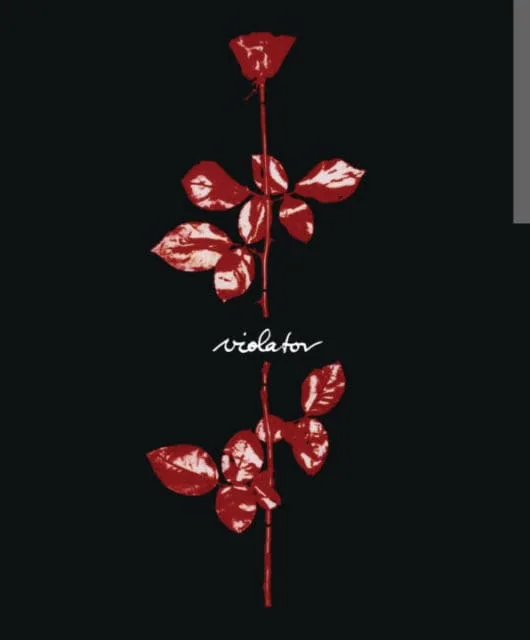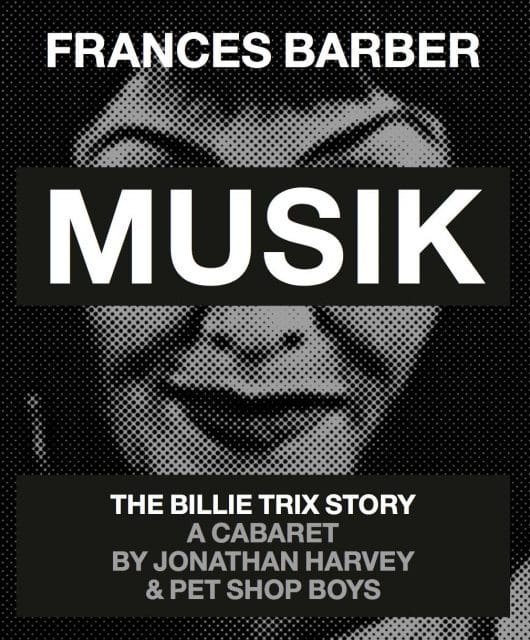The Smiths – the complete guide
By Mark Lindores | January 24, 2022
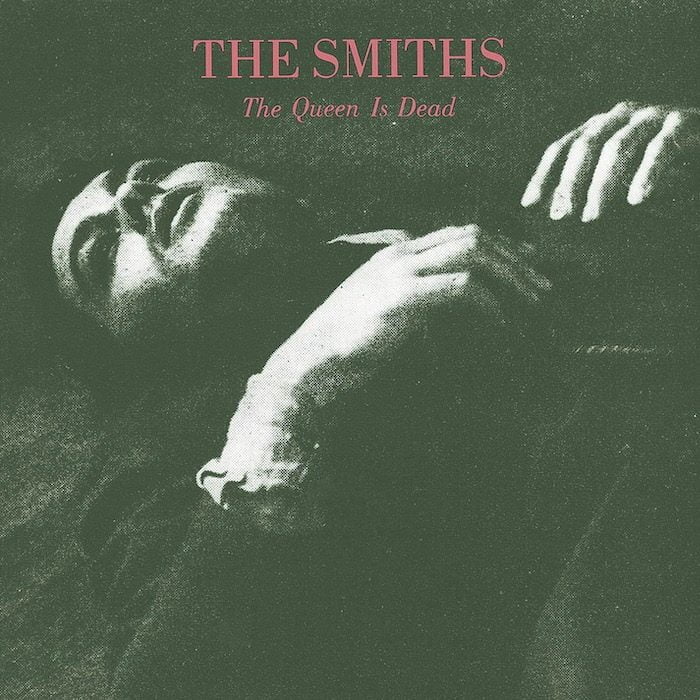
Pop in the 1980s was rocked to its foundations with the arrival of The Smiths in 1983. With their blend of Morrissey’s misery and Johnny Marr’s melodies, they became an integral exponent of Manchester’s musical heritage.
Although they had briefly met at a Patti Smith concert a few years previously, it was a mutual love of her punk rock peers the New York Dolls which led to Morrissey and Johnny Marr forming one of the most distinctive and influential bands of all time in ’82.
While polar opposites on paper, the juxtaposition of bookish introvert Morrissey and fledgling rock star Marr proved to be revelatory.
Marr’s irresistible melodies paired with Morrissey’s wry witticisms and social commentary proved a winning formula with their indie rock signalling a seismic shift on the music scene from synth-pop to guitar bands. After a few line-up changes in the early days, drummer Mike Joyce and bassist Andy Rourke completed the band’s line-up.
Wry Wit
Having amassed a loyal following with their frenetic gigging schedule, they were turned down by EMI and Factory Records before Rough Trade principally agreed to release their debut single, Hand In Glove, before following it with a lucrative contract after that song’s success and impact.
With everything from the band’s name to their lyrics, The Smiths specialised in serving up gritty realism.
Morrissey’s lyrics of isolation, depression, loneliness and sexual ambiguity provided a voice for the voiceless, while his knack for dealing with controversial subject matters and causes carried over from his songwriting to his endlessly entertaining interviews, making him out as a formidable, forthright character which often led to press criticisms and disputes with his peers, many of whom he publicly denounced.
A Voice For The Voiceless
Despite lasting just four studio albums, The Smiths’ canon of unforgettable singles, EPs and killer B-sides elevated the band to heroic status and ensured that their musical legacy would endure, with the band knowing instinctively that the tensions which existed internally would significantly shorten the lifespan of the band itself.
While all members of The Smiths have continued to successfully forge careers in the music industry since their acrimonious split in 1987, theirs is the most anticipated band reunion of them all.
Though Morrissey and Marr have continuously denied that the reformation of The Smiths is ever going to happen, Johnny Marr’s recent revelation that it has got as far as the discussion stages over the years, offers their fans a glimmer of hope that, until they step onstage again together, will never go out.
The Must-Have Albums
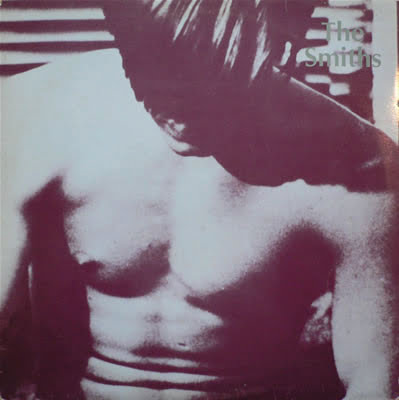 The Smiths (1984)
The Smiths (1984)
Having signed to Rough Trade records, The Smiths immediately began work on their debut album.
Recorded in London in the summer of 1983, the album was re-recorded following a radio session and a meeting with producer John Porter in Manchester and released in February 1984, heralding the arrival of one of the most distinctive and original bands on the British music scene.
Featuring guitarist Johnny Marr’s intricate melodies and Morrissey’s sensitive and thoughtful lyrics, the pair were soon recognised as a dynamic songwriting partnership, with their eponymous debut album an instant classic containing some of their most beautiful, haunting and memorable work.
As well as the obvious early Smiths classics Hand In Glove, This Charming Man and What Difference Does It Make?, The Smiths affirmed from the beginning that its creators were a different breed of pop group, with Morrissey’s unsettling lyrics about subjects ranging from unrequited love, sexual confusion and homosexuality to the Moors Murders making them an instant target for media controversy from the tabloids.
 Meat Is Murder (1985)
Meat Is Murder (1985)
Released exactly a year after their debut, Meat Is Murder saw the band expand their scope both musically and lyrically. Dissatisfied with the production of The Smiths, Morrissey and Marr undertook production duties themselves (with Stephen Street in an engineering role) to ensure the album sounded exactly as they intended.
Sonically, the album saw the band lean to experimentation with funk and rockabilly influences on tracks such as Rusholme Ruffians.
While the album was sonically a progression from the previous one, the songwriting wasn’t as strong. However, the LP did contain its share of gems, including The Headmaster Ritual, Well I Wonder and That Joke Isn’t Funny Anymore.
Although Morrissey’s lyrics about love, teenage angst and death are as eloquent as ever, Meat Is Murder is largely a hostile, visceral record, taking on a much more politicised standpoint, particularly on the title track and Barbarism Begins At Home.
The militant nature of the album was hammered home with a soldier in action during the Vietnam War featured on the cover. Released in February 1985, it was the band’s first No.1 album.
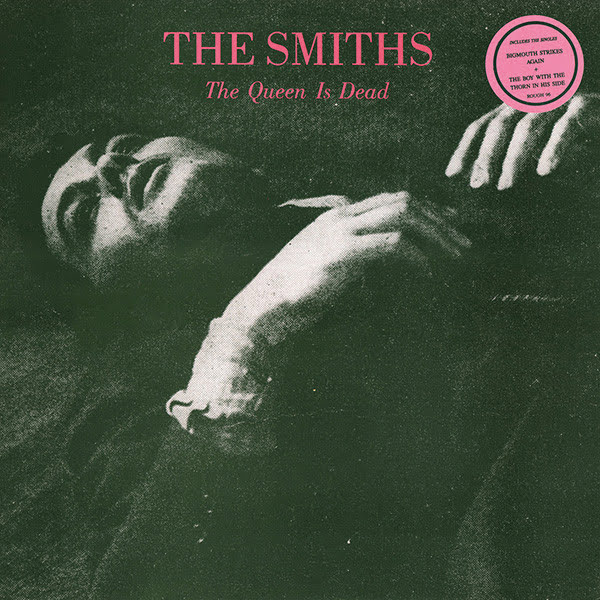 The Queen Is Dead (1986)
The Queen Is Dead (1986)
While the slightly leaden production on The Smiths was its failing, and Meat Is Murder’s songs weren’t quite as strong, The Queen Is Dead is the album on which everything came together to create their masterpiece.
With everyone in the band playing to the peak of their abilities, the album maintains cohesion despite the variation in styles.
From the glorious The Boy With The Thorn In His Side, the title track, featuring superb guitar work from Johnny Marr and Andy Rourke, the slight but very humorous Frankly, Mr. Shankly, the vibrancy of Bigmouth Strikes Again, the upbeat (despite the title) Cemetry Gates, the romantic There Is A Light That Never Goes Out (a career highlight), and the despairing but moving I Know It’s Over and Never Had No One Ever, while Morrissey implores us to partake in his famous despair on I Know It’s Over.
Morrissey’s genius as a lyricist is exemplified throughout and reaches a peak on this album, displaying the wit and sensitivity to write both amusing and genuinely moving lyrics. Peaking at No.2, The Queen Is Dead is the quintessential Smiths record.
 Strangeways, Here We Come (1987)
Strangeways, Here We Come (1987)
The time the band spent holed up in Tears For Fears’ Wool Hall Studios in Somerset in March 1987 to record Strangeways, Here We Come proved to be the catalyst for the implosion of The Smiths as the disintegrating relationship between Marr and Morrissey came to a head during this time.
By the time the album was released the following September, The Smiths were no more, after Johnny Marr’s decision to leave the group.
Cited by Marr and Morrissey subsequently as their favourite Smiths album, the record features an expanding sonic palette, incorporating saxophone (I Started Something I Couldn’t Finish) and lavish orchestration (Last Night I Dreamt That Somebody Loved Me), almost reaching the highs of The Queen Is Dead, with some of their greatest tracks such as Girlfriend In A Coma and Stop Me If You Think You’ve Heard This One Before.
Unfortunately, the lack of promotion for the record cost the band the No.1 spot on the album chart. However, the album’s timeless sound and beautifully crafted songwriting makes for an impeccable swansong.
Read more: Johnny Marr interview
And the rest…
 Hatful Of Hollow (1984)
Hatful Of Hollow (1984)
Although a brilliant debut album, many of the band’s fanbase felt that the songs on The Smiths dealt a disservice with the slightly under-par production which marred the album.
Released in November 1984, the fans were given an early Christmas present in the form of Hatful Of Hollow, a compilation album which featured two of their greatest non-album singles, William, It Was Really Nothing and Heaven Knows I’m Miserable Now plus their B-sides, Girl Afraid and Please, Please, Please, Let Me Get What I Want as well as alternative takes on songs from radio sessions such as What Difference Does It Make?, These Things Take Time, You’ve Got Everything Now and This Charming Man, many of which bore the closest resemblance to the original live versions that fans first fell in love with.
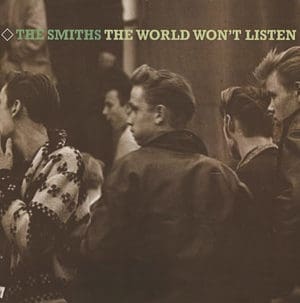 The World Won’t Listen (1987)
The World Won’t Listen (1987)
By 1987, The Smiths had become renowned for distributing their best tracks evenly across their discography, be it as singles, album tracks or B-sides, and The World Won’t Listen continues where Hatful Of Hollow left off, compiling their best tracks released between 1985 and 1987.
Entitled after Morrissey’s fury that The Smiths weren’t receiving the recognition he felt the band deserved, The World Won’t Listen included Smiths classics such as Panic, The Boy With The Thorn In His Side and There Is A Light That Never Goes Out, alongside the storming Shoplifters Of The World Unite, before moving seamlessly from the pure pop of songs like Ask and Shakespeare’s Sister, to the angsty Bigmouth Strikes Again and You Just Haven’t Earned It Yet Baby via the utter despair of Unloveable and Asleep.
 Louder Than Bombs (1987)
Louder Than Bombs (1987)
Originally only released in the US as an amalgamation of Hatful Of Hollow and The World Won’t Listen, Louder Than Bombs, a 24-track double album was granted a UK release just three months after the more concise The World Won’t Listen, in order to combat fans shelling out on extortionate import charges for the extra rarities.
Revealing exactly why Morrissey and Marr were also among the most vital and influential British songwriters of the 1980s, Louder Than Bombs contained many riches, from the semi-controversial Panic, the brilliant and self-loathing Unloveable, the potent Rubber Ring, and their debut single Hand In Glove as well as Sweet And Tender Hooligan, Shakespeare’s Sister
and These Things Take Time. Despite the sprawling tracklist, the songs range from very good to brilliant.
 Rank (1988)
Rank (1988)
While The Smiths had forged a career in which their emotive lyrics were decoded and scrutinised like no-one else, the introspection required for such analysis was dispensed with for the release of Rank, a contract-fulfilling live album recorded in the autumn of ’86, revealing them to be an electrifying live act.
While the original show at Kilburn’s National Ballroom was 21 songs in length, the album was condensed to just 14 songs, showing the band’s audacious disregard for treating singles as superior by dropping landmark tracks such as There Is A Light That Never Goes Out, Meat Is Murder, and How Soon Is Now?
Rank’s release in 1988 capitalised on the solo success Morrissey was enjoying with the Viva Hate album. With a definitive version I Know It’s Over as its highlight, Rank was the perfect epitaph for the band.
The Essential Singles
 Hand In Glove (1983)
Hand In Glove (1983)
After Johnny Marr presented him with a demo tape of Hand In Glove, Morrissey says the song was one of his most instant compositions, having completed it just two hours later.
“I just wanted to use the theme of complete loneliness,” he said. “It was important to me that there’d be something searingly poetic in it, in a lyrical sense, and yet jubilant at the same time.”
After various re-recordings, the song was released as The Smiths’ first single in May 1983. Though it only reached a disappointing No.124 in the charts, it helped them establish a strong fanbase including John Peel who booked them for their first radio session.
When The Smiths closed their final show at London’s Brixton Academy in December 1986 they chose to do so with this song, ensuring that Morrissey’s final words onstage as part of the band were, “I’ll probably never see you again.”
 This Charming Man (1983)
This Charming Man (1983)
Written from the viewpoint of a man who suffered a puncture of his bicycle tyre while riding on a deserted hillside and the flirtation between him and the “charming man” who had come to his rescue, This Charming Man was released in place of the planned Reel Around The Fountain after it was so well-received following its broadcast during a John Peel session.
“A couple of days before I wrote This Charming Man I’d heard Walk Out To Winter by Aztec Camera on Radio 1, and I felt a little jealous,” Johnny Marr said. “My competitive urges kicked in. I felt that we needed something upbeat and in a major key for Rough Trade to get behind.
“It was written in preparation for a John Peel session. I wrote it the same night as Pretty Girls Make Graves and Still Ill. I knew immediately it would be our next single.” It only reached No.25 in the UK charts.
 Heaven Knows I’m Miserable Now (1984)
Heaven Knows I’m Miserable Now (1984)
Having already established a connection with Sandie Shaw after she recorded a cover of Hand In Glove, the band further paid tribute to the 60s singer with Heaven Knows I’m Miserable Now, a nod to her hit Heaven Knows I’m Missing Him Now.
Upon touching down in New York in January 1984, The Smiths were courted by Sire Records executive Seymour Stein who presented Johnny Marr a bargaining tool of sorts with a Gibson guitar.
The night he received it, Marr wrote this song, along with Girl Afraid (the B-side to the 12” single) in his hotel room. Lyrically, the song tackles the subject of depression and sees Morrissey imploringly examining why he feels depressed regardless of how he changes the circumstances around him.
It became a Top 10 single and was the band’s first collaboration with Stephen Street.
 How Soon Is Now? (1985)
How Soon Is Now? (1985)
Written during a productive four-day period in June 1984 which also resulted in William, It Was Really Nothing and Please, Please, Please, Let Me Get What I Want, How Soon Is Now? was considered too much of a departure from The Smiths’ signature sound to be released as a single and was relegated to B-side status of William, It Was Really Nothing. However, radio picked up on the song and it soon became a fan favourite.
The song took its title from Marjorie Rosen’s feminist film study, Popcorn Venus – one of Morrissey’s favourite books and was written about the singer’s debilitating shyness and became an anthem of isolation and loneliness.
The fact that the song had previously been released hindered the chart position, peaking at No.24 in the UK, but the song remains one of The Smiths’ most enduring and defining songs.
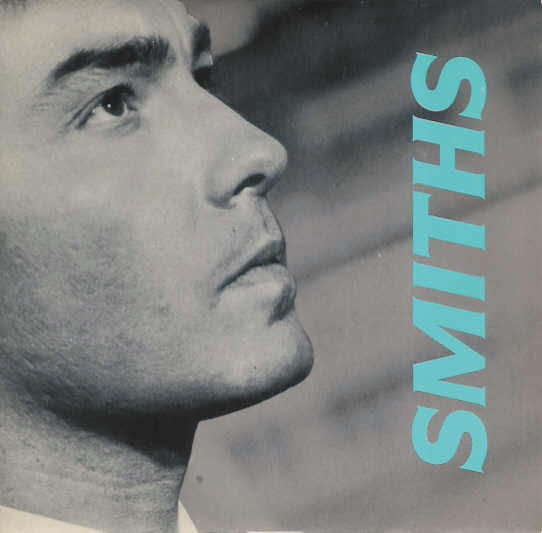 Panic (1986)
Panic (1986)
Written as a commentary on the state of the pop music scene in the mid-80s which Morrissey and Marr felt lacked any depth and “says nothing about my life”.
The catalyst for the song is said to have come from an instance when Radio 1 DJ Steve Wright followed a news report about the Chernobyl disaster with Wham!’s I’m Your Man, inspiring the lyric “Hang the blessed DJ”.
On a personal level, the song was written at a transitional time for the band and was the first to feature Craig Gannon who had replaced Andy Rourke.
Inspired by T-Rex’s Metal Guru, Panic was exclusively a single and reached No.11 in the UK before later being included on the Louder Than Bombs album.
Girlfriend In A Coma (1987)
“You’re not really supposed to like these songs – they’re very depressing and not supposed to be played on radio,” Morrissey said in response to the news that Radio 1 had refused to play Girlfriend In A Coma due to its subject matter.
Internally it was the B-side – a cover of Cilla Black’s Work Is A Four Letter Word which proved problematic for the band. “I hated it,” said Marr. “That was the last straw, really. I didn’t form a group to perform Cilla Black songs. I made a decision that I was going to get away on holiday. The only place I could think of where I knew there’d be sunshine was LA, so off I went. I never saw Morrissey again.”
Only for the Brave

Work Is A Four Letter Word (1987)
Recorded during The Smiths’ final recording session in May 1987 and released as the B-side to Girlfriend In A Coma at Morrissey’s insistence, the Cilla Black song was ultimately the track that ended The Smiths.
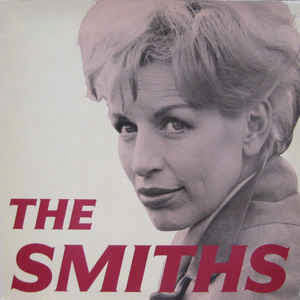 Golden Lights (1986)
Golden Lights (1986)
A testament to the songwriting genius of the Morrissey/Marr partnership is that the nadir of their work is a cover of Golden Lights, the 1964 hit for teenage singer Twinkle, of whom Morrissey was a fan. The song dealt with the pitfalls of fame.
Need to Know
- The Smiths got their name as a direct reaction to extravagant band names such as Depeche Mode and Orchestral Manoeuvres In The Dark and an effort to represent the everyman. “It was the most ordinary name and I thought it was time that the ordinary folk of the world showed their faces,” Morrissey said.
- The artwork of The Smiths’ albums and singles are almost as iconic as their music, celebrating their idols and influences (including Elvis, Coronation Street’s Pat Phoenix, actor Terence Stamp, various Warhol cohorts), and often controversial – from the homoerotic cover of Hand In Glove to a soldier fighting during the Vietnam war on Meat Is Murder.
- The Smiths had a longstanding devotion to vegetarianism and animal rights causes, imploring their fans to become vegetarian in the song Meat Is Murder. Morrissey, a vegetarian since the age of 11, prohibited the band from eating meat and later walked offstage during a set at Coachella as he could smell meat cooking.
The Must-Watch Videos
How Soon Is Now?
Directed by Paula Greif
“It had absolutely nothing to do with The Smiths,” Morrissey said. “Quite naturally we were swamped with letters from very distressed American friends saying, ‘Why on earth did you make this foul video?’ And, of course, it must be understood that Sire made that video, and we saw the video and we said to Sire, ‘You can’t possibly release this degrading video’. And they said, ‘Well, maybe you shouldn’t really be on our label’. It was quite disastrous.”
The Queen Is Dead
Directed by Derek Jarman
“Of the Derek Jarman videos, Panic was definitely the best,” Morrissey later said. “We never actually met Jarman – he did them privately while we were in America, which was absolutely the only way we’d agree to do it.”
Adopting his trademark collage style, the film was a triptych of videos for The Queen Is Dead, Panic and There Is A Light That Never Goes Out which cut and paste commentary on the state of modern Britain along with clips of politicised nostalgia.
As well as serving as promo videos, the film was screened at the Edinburgh Festival.
Stop Me If You Think You’ve Heard This One Before
Directed by Tim Broad
While the Stop Me If You Think You’ve Heard This One Before single had been shelved in the UK after radio stations refused to play it in the wake of the Hungerford massacre due to the lyric “plan a mass murder”, it was released in other territories and the video, featuring Morrissey lookalikes (recruited from an ad in the Smiths Indeed fanzine) cycling around Manchester and Salford is some of the most iconic Smiths visuals. The footage was also used in a video for There Is A Light That Never Goes Out.
Ask
Directed by Peter Fowler
In an interview following the break-up of the group, Morrissey continued to voice his disdain for being drawn into the video- making process. “I never like any videos, and I just feel that if The Smiths could just slide along, or had just slid along without ever touching this world, I would have felt incredibly proud,” he said. “But I suppose, to the glazed eye, that hasn’t happened. Something precious has been lost and I don’t think it was worth losing it, to be quite honest.”
Read more: The Lowdown – Morrissey


